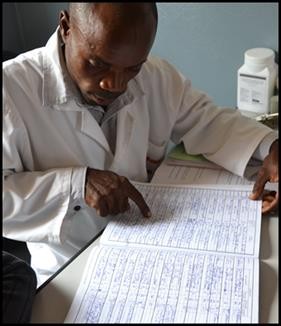
May 2014—Founded by Angolans, the NGO Prazedor is a trusted actor in the area of public health. Since the end of the Angolan civil war in 2002, transportation and communications have gradually improved, enabling Prazedor and other NGOs to start operating on a provincial scale.
Prazedor was among the first Angolan NGOs to seriously address the looming threat posed by the HIV/AIDS epidemic. It began its operations in Lubango in 1999, a city in the highlands of southwestern Angola that has a long-established tradition of vibrant NGO activity. Lubango is also the capital of the vast province of Huila, large parts of which were inaccessible during the war. In 2013, an HIV education project was among Prazedor's most effective interventions, targeting sex workers and their truck driver clients.
Prazedor is one of 17 local NGOs benefiting from the USAID-funded NGO Strengthening Project implemented by World Learning. Prazedor receives training on organizational development, financial and human resource management, and one-on-one mentoring.
After more than a decade of working with communities throughout the province, Prazedor is now taking on a new and more complex project to strengthen Angola’s health systems in malaria prevention. Under the U.S. President's Malaria Initiative (PMI), Prazedor is training NGOs in malaria case management, malaria prevention and treatment in pregnancy, and assessments of laboratory services. It also provides training on basic laboratory skills including malaria microscopy services and use of rapid diagnostic tests for malaria in government health facilities in Huila province.
"Angolan NGOs taking on roles previously played by international actors are rooted in the society in which they work, and have a profound vision of local needs and of the social and cultural context in which interventions are made," said Aniceto Rosario, Prazedor’s executive director. "What is more, while international NGOs are subject to decisions made in faraway countries about funding and policy that may change from year to year, national NGOs are able to provide continuity.”
With a long and dedicated history of service to the community, Prazedor is showing the way forward for Angolan NGOs as they move toward greater autonomy and local accountability. Through its participation in the NGO Strengthening Project, Prazedor is building skills to create better systems to pursue sustainable financing in the future.
Links
Follow @USAIDAngola, on Facebook, on Flickr







Comment
Make a general inquiry or suggest an improvement.